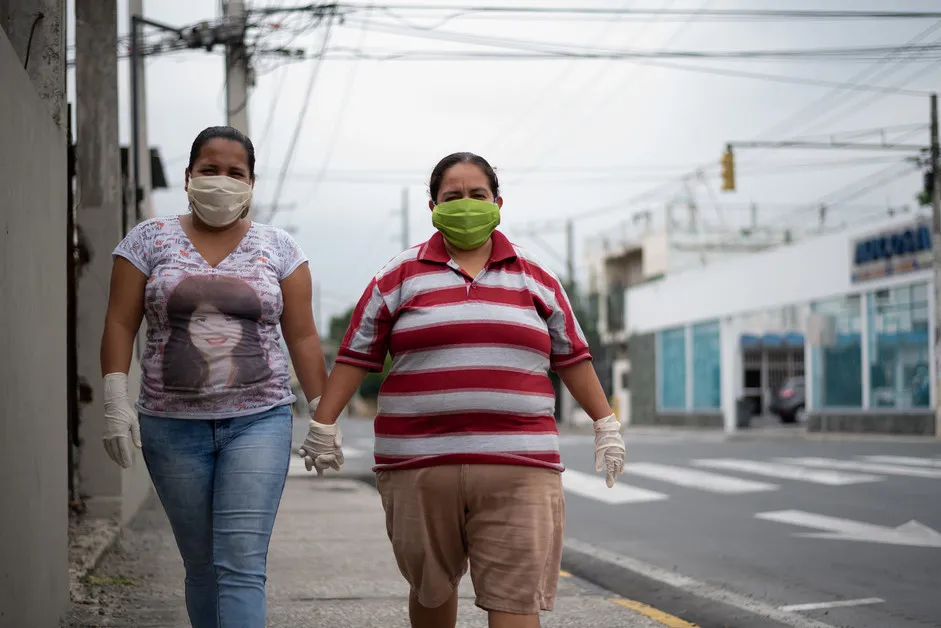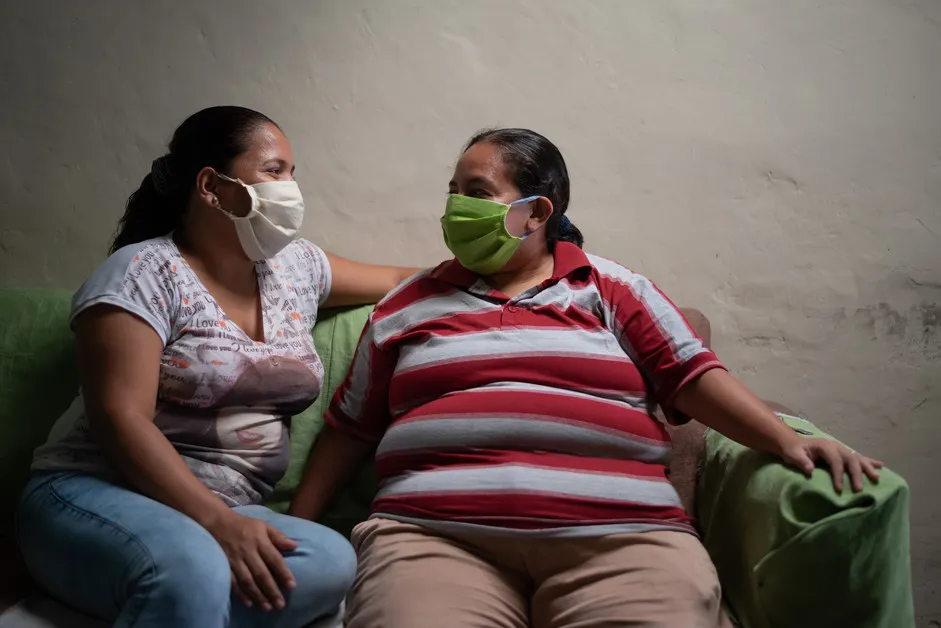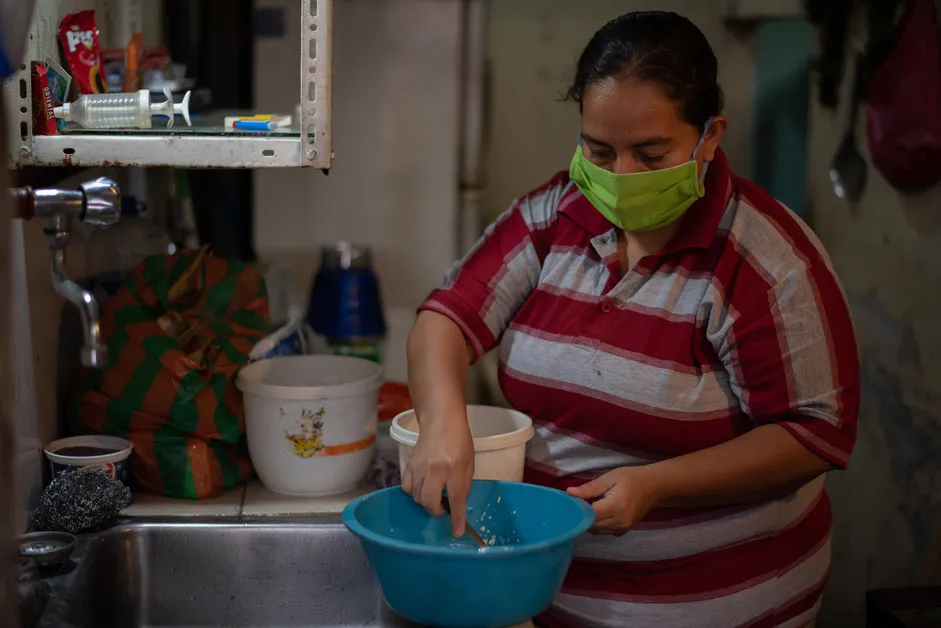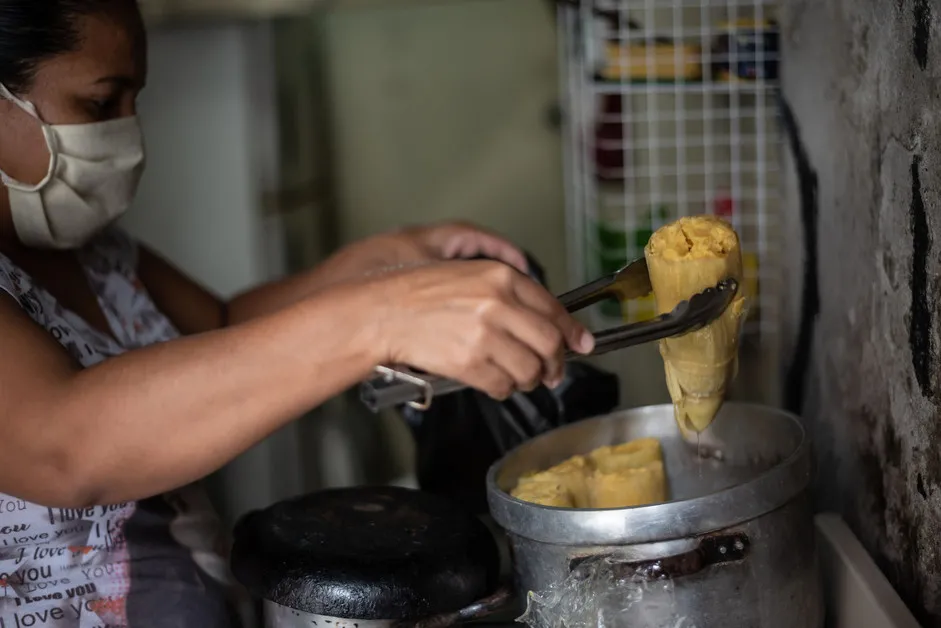Andy Abad and Alexandra Benavides, both 36 years old, have been together for five years. They live in Guayaquil, Ecuador, one of the cities worst hit by coronavirus in Latin America. Official estimates count 4,274 deaths in Ecuador as of June 24 but reports by the New York Times and others say the total number of deaths could be up to 15 times higher than reported.
Lack of work due to COVID-19 forced the couple to leave the apartment they shared with Alexandra’s two children and move to a smaller place in the center of Guayaquil with Andy’s aunt. Now Alexandra’s children are staying with their grandmother.





